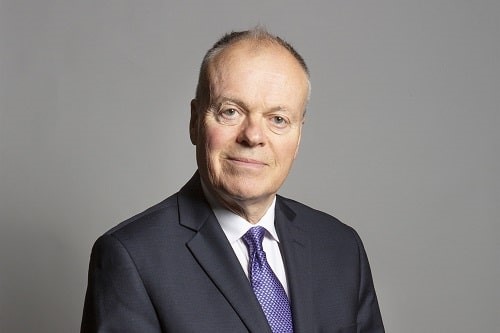Since the tragic fire at Grenfell Tower five years ago, it has come to light that many hundreds of buildings have dangerous cladding or other fire safety defects. Residents have become trapped in homes that are unsafe but can’t sell them as banks have been unwilling to take on the risk.
Opinion
Government plans to fix the building safety crisis leave leaseholders and social housing providers on the hook for significant costs
Meanwhile, the progress on remediating buildings has been slow. Recent analysis by the Sunday Times estimates only six per cent of flats with flammable cladding have been made safe, and that 641,000 residents are living in potentially unsafe flats.
Public funding for remediation has been limited. Until recently, only buildings at least 18 metres in height have been eligible for public funding, and only for cladding remediation and not other defects. Worst of all, where developers didn’t do the right thing or applications to the Building Safety Fund were unsuccessful, leaseholders have been on the hook for eye-watering remediation bills and interim safety measures.
 Clive Betts MP: "Leaseholders have seen their buildings insurance premiums increase by a shocking amount – for some it has increased 10-fold." Photograph: UK Parliament
Clive Betts MP: "Leaseholders have seen their buildings insurance premiums increase by a shocking amount – for some it has increased 10-fold." Photograph: UK Parliament
It has always been the position of my Committee that leaseholders should not pay a penny to rectify a problem they played no part in creating.
Government has made some progress on holding industry to account and protecting leaseholders from costs
In recent months the government has made some welcome progress. It has secured £4 billion in contributions from developers to fund cladding remediation on buildings 11–18m in height, as well as pledges from many major UK developers to fix faults of their own doing and pay for the work. Through the Building Safety Act 2022, it has enshrined protections for leaseholders in law so that they cannot be made to pay for cladding remediation for buildings at least 11 metres in height.
While the government has made progress in holding developers to account, my Committee heard clear evidence that they are not the only industry who have contributed to the crisis for leaseholders. We are still waiting for further detail on how the government will recover funds from product manufacturers.
On top of unfair remediation bills, leaseholders have seen their buildings insurance premiums increase by a shocking amount – for some it has increased 10-fold. We await the final outcome of a much-needed review by the Financial Conduct Authority on buildings insurance price increases.
Many leaseholders will still fall through the cracks
While leaseholders now have statutory protections in relation to cladding costs in buildings at least 11 metres in height, my Committee is concerned by how many leaseholders will fall through the cracks.
Buildings below 11 metres in height are not covered. Nor are non-cladding defects, for which the government has introduced a spending cap of £10,000 for leaseholders (£15,000 in London). For many, this is still a life-changing and unaffordable amount, and we maintain that leaseholders are no more responsible for non-cladding defects than they are for cladding defects.
On top of that, the government rejected my Committee’s call for leaseholders who have already paid for remediation to be compensated. The way we see it, people who have taken the difficult decision to scrape together funds to make their homes safe are now being punished for it.
We are still waiting to learn if social housing tenants will be included in protections
My Committee is campaigning for equity between social housing tenants and leaseholders.
Social housing providers have only been able to apply for the Building Safety Fund if they can prove that paying for cladding remediation themselves would make them financially unviable or that they would otherwise pass the costs onto leaseholders. That means that social housing providers have had to divert funding away from maintenance and upgrades, as well as from building much needed new homes.
The National Housing Federation told us that one in 10 planned new affordable homes had been axed because of building safety costs. We think it is fundamentally unfair that one neighbour, who is a leaseholder, can have their cladding remediation costs met by public funding, while another, who is a tenant, effectively contributes through their rent payments. We continue to call on the government to give social landlords full access to any public funds for building safety.
In recent months the government has made much-needed and overdue progress in holding industry to account and protecting leaseholders from remediation costs. It is vital that the government continues to build on this progress and address the gaps my Committee has identified.
LUHC Committee’s inquiry into building safety remediation and funding here
Clive Betts is chair of the LUHC Select Committee and the Labour MP for Sheffield South East.
OPINION

The air we breathe is all our business
By Nicky O’Malley, director of corporate partnerships, Global Action Plan on 01 June 2023
Businesses have a vital role to play in improving air quality – and the UK’s Clean Air Day on 15 June is a great opportunity for companies to begin or renew their efforts in this area.

All jobs greener: why we need workforce transformation for a sustainable future
By Martin Baxter, deputy CEO, IEMA (Institute of Environmental Management & Assessment) on 01 June 2022
The shift to a green economy will create green jobs within new and emerging sectors, while those working in existing sectors will have to gain the requisite green skills to take advantage of the business value-creation opportunities that come from embedding sustainability across the whole organisation.

Preventing chemical pollution: how the UK is falling behind Europe
By Ruth Jones MP for Newport West & Shadow Minister for Agri-Innovation and Climate Adaptation on 01 June 2023


